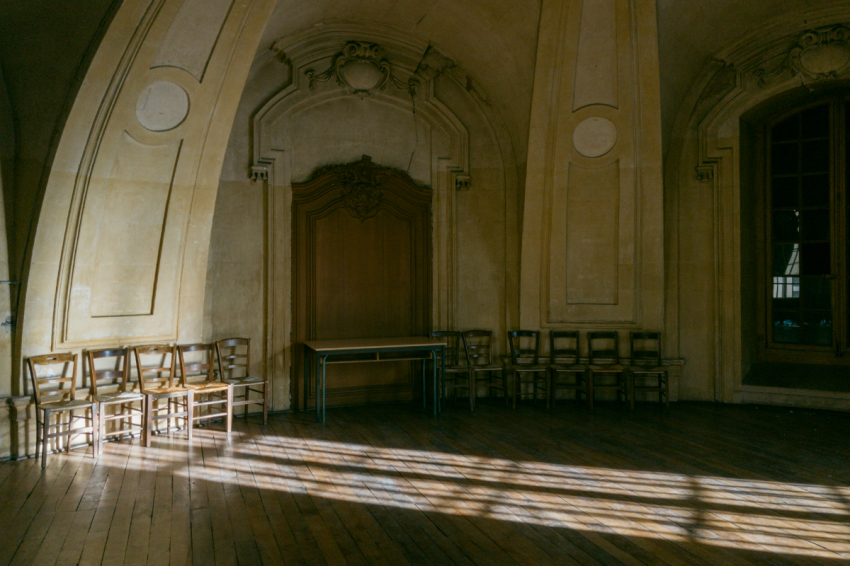Expats once called this old Paris church home

I had long given up hope of ever visiting an overlooked church in the heart of Paris, near the Louvre and Palais-Royal on the fashionable Rue Saint-Honoré.
The Reformed Church of the Oratory of the Louvre, or Eglise Réformée de l’Oratoire du Louvre in French, is housed in a former Roman Catholic church and royal chapel under Louis XIII.
The early 17th century baroque edifice was, as with so many other churches and cathedrals, looted and defaced in the 1790s during the worst of the French Revolution.
Napoleon gave it to French Protestants for their use in 1811. It has remained in their hands ever since, although for much of the 19th century different American expat congregations used one of its nondescript rooms for their English language services. Called the Upper Room and accessed through an internal staircase in the southwest corner, the room is, as one might expect given its name, on the top floor.
In the past I had tried arranging a visit, but emails to the church office went unanswered. I didn’t even think of trying again during my Christmas trip to Paris, but when I walked by and saw congregants walking out of their Christmas Day service I knew I had go inside. Talk about good luck.
Unfortunately, it is common in Paris — and frankly, across France — for historical sights not to have any information translated into English. Even many museums fail to offer translations of exhibits.
The Oratory of the Louvre was no exception. While there were plenty of printed materials, everything was in French, a language I regret not learning as a kid.
Inside I quickly spotted the minister, the Rev. Béatrice Cléro-Mazir. Her black Geneva gown and white preaching bands stood out from the otherwise normally dressed congregants socializing in and around the narthex.
In my horrible, broken French I said “bonjour” and asked if she spoke English to which Cléro-Mazir replied that she spoke some. I then asked about visiting the room. At first the minister didn’t know what I meant, but she quickly figured it out and gladly escorted me there.
Cléro-Mazir seemed genuinely surprised when I told her the room had been the first Paris church for American Presbyterians and Episcopalians.
Other than the absence of furnishings it looked barely changed from when Presbyterians used it between 1816 and 1830. Even the creaky wooden floors looked original to the era. (The descendant of this congregation is the present-day American Church.)
Episcopalians, including the writer James Fenimore Cooper, under the ministration of a Scottish bishop moved in when the Presbyterians left. By the 1850s, an American clergyman was in charge and services were held every Sunday at, in the words of some congregants, an “inconveniently early” time.
Eventually an Episcopal parish — now called the American Cathedral, also known as the Cathedral Church of the Holy Trinity — was officially established and, not long after, their own edifice was erected. The rest, as they say, is history.
Unfortunately, the history seems to have been forgotten. Perhaps one day someone might install a plaque acknowledging the role the Oratory of the Louvre played in the formation of two prominent American churches in Paris.
If you go
As I said, access to the Eglise Réformée de l’Oratoire du Louvre can be difficult. The best time to visit is Sunday, when the weekly French language worship service is held at 10:30 a.m.
Spires and Crosses, a travel column exclusive to The Christian Post, is published every week. Follow @dennislennox on Twitter and Instagram.



























